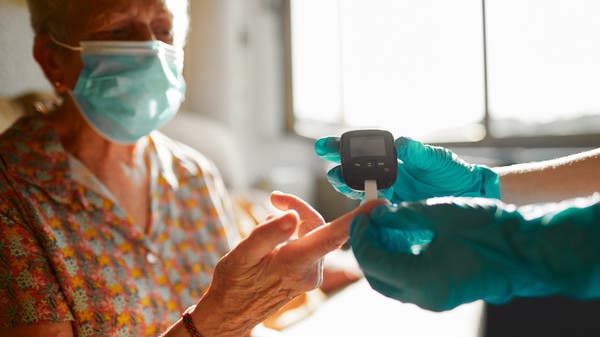
[ad_1]
An Italian study expected a significant increase in the number of diabetics and said this “may be because the pancreas is affected by the emerging corona virus”.
The study, published in the latest issue of the journal Nature Metabolism, found that about half of patients hospitalized with Covid-19 at the start of the epidemic had high blood sugar.
Lead author of the study, Paolo Fiorina of the University of Milan in Italy, a researcher in the nephrology department at Boston Children’s Hospital in America, said in a report posted on the hospital’s website: “These people did not have diabetes before contracting Covid-19. About 46% of them had new hyperglycemia. While some were treated, about 35% remained hyperglycemic for at least 6 months after infection.
expressive
This study assessed the health of 551 people hospitalized in Italy from March to May 2020, and the follow-up period included 6 months after hospitalization.
Compared to patients who did not show abnormal glucose levels, hyperglycemic patients face more serious clinical problems, such as longer hospital stay, more severe clinical symptoms, increased need for oxygen, increased need for ventilation and intensive care treatment. “We wanted to understand the mechanism that led to the poor performance of these patients, as opposed to those who did not have hyperglycemia,” adds Fiorina.
Fiorina had previously published research that showed Covid-19 caused problems with glucose metabolism, and to find out more, all patients received a glucose sensor upon admission to hospital. Over time, with the help of his research team, he discovered numerous abnormalities in the control of glucose metabolism in COVID-19 patients who develop hyperglycemia.
expressive
They also found that hyperglycemic patients had abnormal hormone levels and severe hyperinsulinemia because they produced too much insulin, had abnormal levels of insulin, and showed signs of impaired function of the insulin-secreting beta cells. .
“Essentially, the hormonal profile indicates abnormal pancreatic function in these patients with COVID-19, and this persists long after recovery,” says Fiorina. Hyperglycemic patients also have severe abnormalities in the amount of inflammatory cytokines, including IL-6 and others.
While the abnormalities in glucose metabolism decreased over time in some patients, others remained, and many patients experienced higher levels of postprandial glucose and abnormal pancreatic hormones during the postprandial period. Covid-19.
ويقول فيورينا “هذه الدراسة واحدة من أولى الدراسات التي أظهرت أن كوفيد -19 له تأثير مباشر على البنكرياس, فهي تشير إلى أن البنكرياس هو هدف آخر للفيروس الذي يؤثر ليس فقط على المرحلة الحادة في أثناء العلاج في المستشفى, ولكن أيضا على صحة هؤلاء المرضى Long-term”.
The study highlights the importance of assessing pancreatic function in patients admitted to hospital with COVID-19 during their hospital stay and long term. “This goes beyond the fasting blood sugar test because we observed disturbances in glucose metabolism during the day that were not always present on the normal fasting test,” adds Fiorina.
Regarding treatment, questions remain as to the management of patients with blood glucose abnormalities associated with Covid-19, whether patients should be treated only with anti-diabetic drugs, such as an insulin sensitizer, or whether Anti-inflammatory drugs, such as “tocilizumab” and other drugs are used.
“If you continue to target and block insulin, but have strong chronic inflammation, it can lead to chronic damage,” says Fiorina. Fiorina suggests larger studies to test anti-diabetic and anti-inflammatory therapy. “When you think of the number of patients hospitalized with COVID-19, we could see a massive increase in the number of diabetics,” he says.
Source link